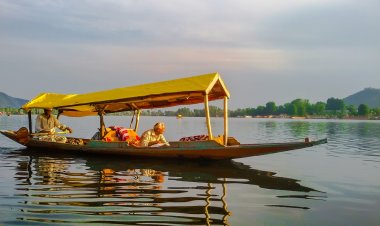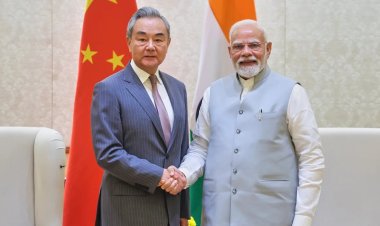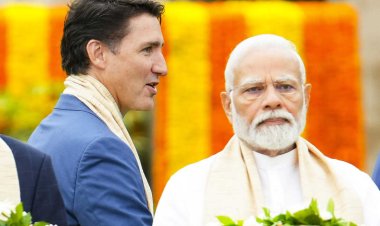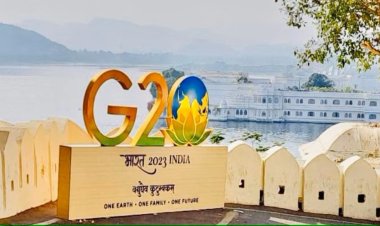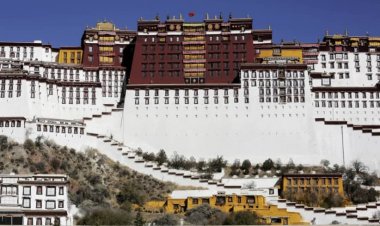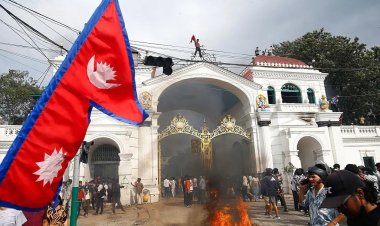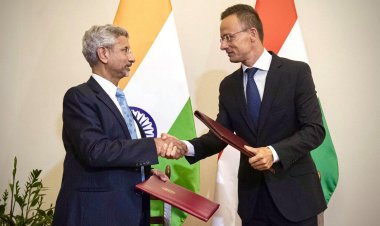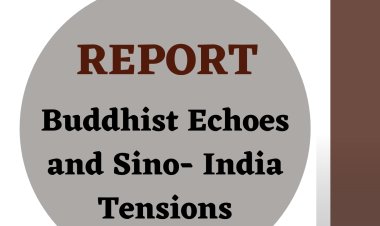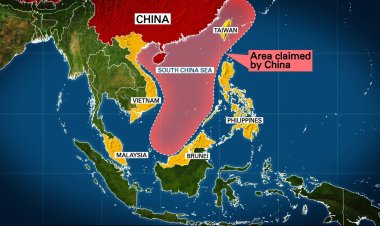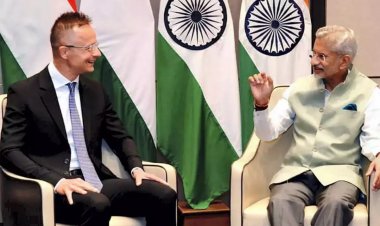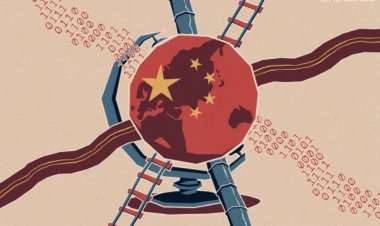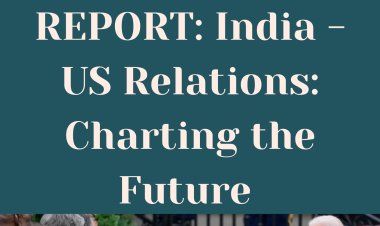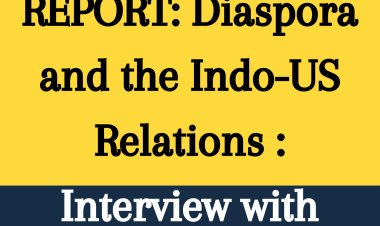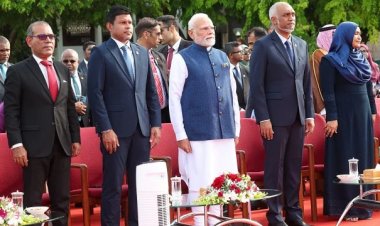China's Strategy on the Jammu and Kashmir 'Situation'
Exploring Beijing's intent and instincts in the Kashmir imbroglio
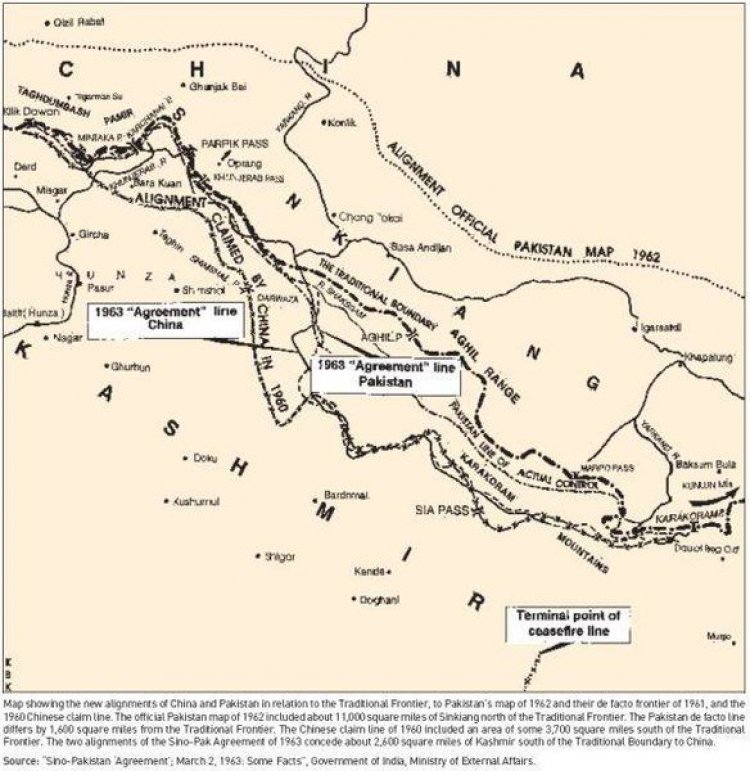
Analysis
By Dr. L. Venkateswaran
Over the past few years, the mainstream narrative and analysis on the security issues of Jammu and Kashmir have had an overwhelming inclination towards contextualizing the J&K situation as a dispute between India and Pakistan. A third important dimension to this issue, which often skips the mainstream radar, is China's occupation of Aksai Chin, gradually since the 1950s and early 1960s, and Shaksgam valley( Trans-Karakoram Tract) after the 1963 Sino-Pakistan agreement.
How has China viewed the J&K situation over the years?
China's position on the J&K situation has evolved over four phases.
In the first phase (1956-1964), Beijing decided to maintain a principled high ground by not getting involved in the J&K situation since it wanted to establish close relations with India and Pakistan. Chinese Premier Zhou en Lai, during his visit to India in 1956, declined Indian PM Nehru's offer to visit J&K as it might indicate tacit Chinese support for India's position. Even as India's relations were solidified through the Panchsheel agreement of 1954, China's relations with Pakistan began to intensify in 1956.
However, in the second phase (1964-1980), China adopted a distinctly Pakistan's position by supporting a) self-determination of Kashmiri people, b) Kashmiri's resorting to armed struggle, and c) Pakistan's sovereignty and territorial integrity over all areas it controlled. The underlying reasons which influenced Beijing's position were– i) Friction between India and China over Tibet and the Dalai Lama's refuge ii) Sino-Indian conflict of 1962 where US and Soviet Union adopted pro India stance iii) Increase in Sino-Soviet tensions along with attempts by the Soviet Union to reach out to Pakistan in an effort to mediate the Indo-Pak dispute and iv) Rising tensions between India and Pakistan leading to the 1965 war.
In the Post-Mao years, as Deng Xiaoping rose to leadership, Beijing's position shifted away from supporting armed insurgencies in the neighborhood to a more balanced diplomatic approach of negotiating territorial swaps to end the border dispute. The reformists in Beijing offered to revive diplomatic relations with India in 1976, which was reciprocated by the State visit of India's External Affairs Minister, Atal Bihari Vajpayee, to China in 1979.
In the third phase (1980 – 1991), Beijing began calling the Kashmir dispute a bilateral issue (consistent with India's position) that was leftover from history by the British and not by India's forced occupation in 1947 (which was Pakistan's position), which needs to be resolved through peaceful negotiations in accordance with both the Shimla Agreement (consistent with India's position) and the UN Resolutions (consistent with Pakistan's position).
In the fourth phase (post-1991), China maintained that the dispute was a colonial legacy and that this needs to be resolved through peaceful negotiations. Beijing, however, began to refrain from emphasizing resolving the dispute in accordance with the UN resolutions, particularly since the 1960s. China supported "bilateral resolution," thereby discouraging Pakistan's attempts to internationalize the J&K situation and "through peaceful negotiations," thereby rejecting the legitimacy of resorting to violence (terrorism) for liberating Kashmir, which Pakistan was propagating. Interestingly, this was more aligned with India's position as any attempts at resolution by a third party like the US or UN could have put global pressure on China to vacate areas it controlled as part of the final resolution of the J&K situation.
China possibly perceived that a bilateral resolution was unlikely, and the existing status quo would be maintained by both parties, which was a more beneficial scenario. The denouncing of a violent approach was also possible because a forced approach could bring about a resolution of the situation that was detrimental to Beijing's objective of a status quo. China was also against this approach due to its growing concerns about the role of violent groups in Pakistan in radicalizing Uyghur separatists in Xinjiang.
Kashmir Dispute as Leverage
By the late 1990s, Beijing attempted to leverage its position on Kashmir to influence India's policies towards China. In June 1998, possibly in response to India's nuclear tests and Defence Minister George Fernandes's May 1998 statement that China was India's main threat, Qin Huasun, China's ambassador to the UN, referred to peaceful negotiations and went on to emphasizes 'in accordance with the UN resolutions' which was contrary to the stated position since the early 1990s. Post-2009, possibly in reaction to the growing Indo-US rapprochement as seen by the 2008 nuclear deal and its increasing involvement in PoK, China began issuing loose leaf visas to citizens from Jammu and Kashmir.
China's approach to the J&K situation has attempted to offset any pro-India tilt in its official position by developing an 'all-weather" friendship with Pakistan, encompassing military, nuclear, diplomatic, and economic dimensions. Beijing has continuously provided military aid to Islamabad even during India-Pakistan conflicts. China's assistance to develop the Gwadar port has also removed Pakistan's over-dependence on the Karachi port, through which 90 percent of Pakistan's foreign trade passed. The strong alignment with Pakistan achieved two objectives for China – a) contain India in the context of their boundary dispute and on sharp differences over Tibet and b) use the relationship with Pakistan to propel from a regional to global power status. Over the years, China has also adopted contrasting positions on India's Jammu and Kashmir (IJK) and Pakistan occupied Kashmir (PoK). While Beijing has been consistent in reiterating that IJK is a disputed issue, it has not questioned Pakistan's territorial sovereignty over PoK and has continuously increased its presence in that region through the CPEC despite consistent protests by India.
Why does China prefer a status quo and not want a resolution of the J&K situation?
China realizes that no political dispensation in democratic India will be willing or can push through constitutional amendments to give up further territory to Pakistan as part of a resolution. If a resolution of the situation leads to India getting control of some territories like Hunza and Gilgit, China will have to reopen negotiations with India on the area ceded to it by Pakistan according to the Sino-Pak agreement of 1963. In February 1962, it was China which proposed a provisional agreement pending the final settlement of Kashmir. Further, if India gets complete control of PoK as part of a resolution, all land connections between China and Pakistan will get cut off. If the resolution is based on the status quo resulting in soft borders, India will demand and emerge as an economic rival to China in the Pakistani market. Further, cooperation between India and Pakistan could undermine the China-Pak strategic axis.
Beijing does not see any gain for itself in pushing for a resolution on Kashmir. Keeping the situation alive will a) keep its claim over Ladakh legally alive, b) keep India distracted on two fronts, c) make Pakistan reliant on China d) increase China's ability to leverage the US on Pakistan. Beijing encourages dialogue to keep tensions between nuclear-armed India and Pakistan under control. By controlling the J&K situation, primarily through its influence on Pakistan, China is able to ensure that the region is more or less stable. It provides Beijing an enabling environment to increase its cooperation with South Asia, contributing to its "peaceful" global rise.
Dr. L. Venkateswaran is a Global Fellow, Asia Program at the Woodrow Wilson Center for International Scholars, Washington DC. He has previously served in the National Security Council Secretariat, Government of India, and has been a Kodikara Research Fellow with the Regional Center for Strategic Studies, Colombo. In a related recent article, Dr. Venkateswaran has made a factual and legally strong argument on the Kashmir situation in the India and Pakistan context titled "Pakistan's Kashmir Obessesion: An Assessment" at https://chanakyaforum.org/pakistans-kashmir-obsession-an-assessment/
Disclaimer: This paper is the author’s individual scholastic contribution and does not necessarily reflect the organisation’s viewpoint.

